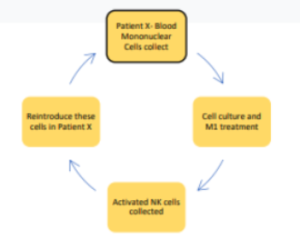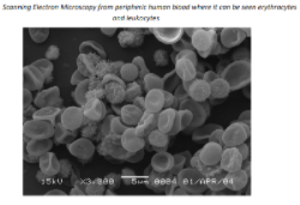
According to this prevailing schema, the decision between lymphoid and myeloid lineages occurs very early. Natural killer (NK) cells are innate immune effector cells. Their derivation from either lymphoid or myeloid lineages was debated early in their discovery. Further research showed that NK cells can be derived from common lymphoid progenitors and hence have been considered separate from myeloid lineage. However, some studies question this and have shown that progenitors expressing myeloid antigens can also develop into NK cells. However, alternative views have been proposed, including the existence of a common myelo-lymphoid progenitor and this process depending on which cytokines are they exposed.
NK cells are unique, since they have the ability to recognize stressed cells in the absence of antibodies and MHC, allowing for a much faster immune reaction. So, NK cells, as part of the innate immune system, play a key role in host defense against viral infections and tumor cells. The notion that myeloid precursors previously known to give rise to monocyte/macrophage and Dendritic Cells (DCs) are also capable of NK-cell differentiation puts the recent findings in a new therapeutic perspective.
Endorphins and enkephalins, small peptides, are produced by the central nervous system, by the pituitary gland (hypophysis) and by cells in the adrenal medulla, intended to mean a morphine-like substance originating from the body itself. They have potent painkilling effects leading to analgesia and behavioral changes, producing states of euphoria. One of the important effects of these molecules is the activation of NK cells, increasing the vigilance of these cells against cells altered by infection or neoplasia

img. : Scanning Electron Microscopy from peripheric human blood where it can be seen erythrocytes and leukocytes





